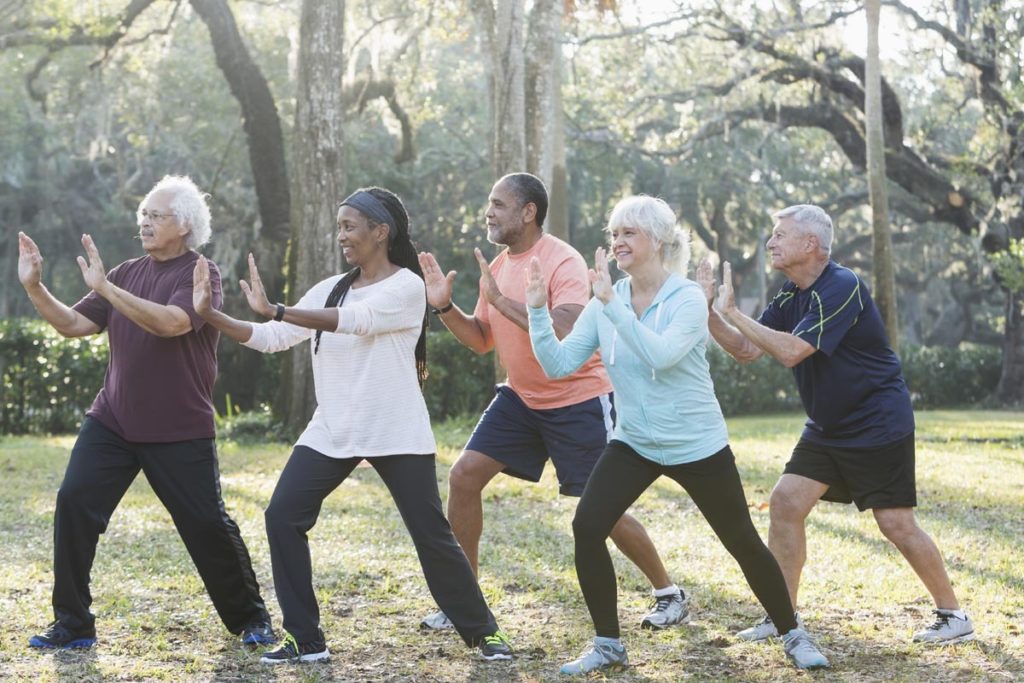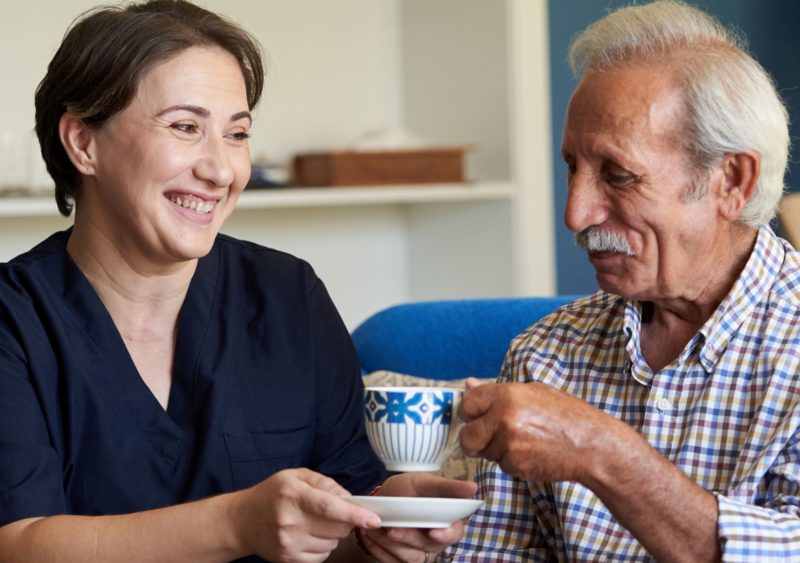Meaningful Ways To Participate in Alzheimer’s & Brain Awareness Month
While most fundraising will take place on The Longest Day, there are several simple ways to participate in raising awareness for Alzheimer’s disease and dementia throughout the month. From simply wearing purple to hosting a fundraiser, everyone can do something to make a positive impact in the fight against Alzheimer’s this month. Here are some ideas to get you started:
- Take the Purple Pledge. Join the movement by taking the Purple Pledge, promising to raise awareness for Alzheimer’s this month.
- Share your story. With so many people fighting dementia worldwide, most of us have stories of how the disease has affected us. Share your story on social media using the hashtag #ENDALZ or #EndAlzheimers and your story may be featured on The Alzheimer’s Association’s webpage.
- Wear purple on June 21st. If organizing an event seems overwhelming or is just not possible right now, simply wear purple to show your support for people fighting the disease and their caregivers.
- Change your social media profile. Add a frame to your Facebook profile to raise awareness and show your support for the cause. Make your picture one of you and your loved one fighting the disease or use it to showcase your family’s fundraising efforts.
- Decorate common areas with purple. Decorate your classroom, yard, or home in purple and show that you and your family are doing your part to support Alzheimer’s and dementia research and care.
- Support the Caregivers in your life. If you aren’t a caregiver yourself, chances are you know someone who is. Go out of your way this month to show your support, and ask how you can better support them as they provide emotional and physical care for loved ones fighting dementia. Bring a meal, a coffee, or simply send a card showing you care.
- Visit Loved Ones fighting the disease. Spend some extra time with loved ones who are fighting dementia. In the early stages of dementia, your loved ones need your support as they may be fearful of the progression of the disease. In-person visits are just as important for loved ones in the later stages of dementia. Studies show that spending time with loved ones is crucial to well-being in the later stages of the disease, even after they are unable to recognize visitors.
- Create a family legacy. Work with a loved one to go through photos, relive good memories, and maybe even create a new photo book or video. Spending time with loved ones, creating a bond, and creating a family legacy for generations to come is a great way to preserve family memories while engaging family members from old to young.
- Host an educational event. Many people do not understand Alzheimer’s or dementia until they are forced to face the truth about it after a diagnosis or a family member’s diagnosis. Help the people in your community learn more about the causes, signs, and symptoms of the disease by hosting an educational event.
Host an event at your local community center, online video or zoom, public forum, etc. Any place where you feel the participants would benefit from learning more about brain awareness. You can share information on your social media platforms as well, with relevant topics and subject matter. - Make sure your Loved One has proper socialization. Studies show that seniors are more susceptible to dementia if they are not socially engaged. If your loved one is spending too much time alone, consider Adult Day Care options in your area or it may be time to consider a move into a community with social activities appropriate for your loved one. Contact your local Assisted Living Locators care advisor for information about either option. As certified dementia care experts, they can help you navigate a wide range of issues that you may be dealing with for your loved one.
- Make time for self-care. One of the best ways to commemorate this month is by taking care of yourself. As we learn more about Alzheimer’s, we are finding the best way to treat the disease is to prevent it in the first place. Exercise, eating right, rest, and reducing stress are all great ways to potentially prevent Alzheimer’s and practice self-care.
10 Odd and Fun Activities That Your Brain Will Love

Researchers have documented various unusual and fun activities that can keep our brains healthy. Here are 10 activities that seem to help, according to recent studies. (Note of caution: Most of the studies cited below show a correlation between the activity and cognitive health but do not prove causality.)
- Sing out. Past research has shown that playing a musical instrument has positive effects on cognitive functioning, especially cognitive flexibility, the ability to switch the mind’s focus from one thought process to another. Now, new research from the University of Helsinki reveals a chorus of benefits of singing. According to the researchers, elderly singers have better cognitive flexibility than non-singers and also experience a mood lift from singing together. In addition, participants in choral groups develop a strong feeling of togetherness as they sing, which can protect them from the mind-sapping effects of loneliness that many people experience as they age.
- Try sauna bathing. Strangely enough, recent research indicates a strong relationship between Finnish sauna bathing and the prevention of Alzheimer’s disease. (PT blogger Arash Emamzadeh describes the research in his blog here.) Why might sauna bathing lower dementia risk? The mechanisms could include the activation of protective proteins by the heat, better cardiovascular functioning, reduced inflammation, better sleep, reduced stress, and increased relaxation. (Warning: The extreme heat would not be healthy for every person. Consult with your doctor.)
- Practice tai chi. Tai chi is a slow-motion exercise for self-defense and meditation. Is tai chi more beneficial than other forms of exercise when it comes to preserving mental function? According to the Harvard Health Letter, it is: “In a meta-analysis of 20 studies on tai chi and cognition, tai chi appears to improve executive function—the ability to multitask, manage time, and make decisions—in people without any cognitive decline. In those with mild cognitive impairment, tai chi slowed the progression to dementia more than other types of exercise and improved their cognitive function in a comparable fashion to other types of exercise or cognitive training.”
- Cultivate a positive attitude toward aging. Negative attitudes about aging have a striking effect on memory and on health in general. In studies by Yale researcher Becca Levy, “older people exposed to … positive messages about aging showed better recall and more confidence in their abilities than those exposed to negative ones.” Other research showed that those with positive views of aging had better balance, did better on memory tests, walked faster, recovered from disabilities more quickly, and lived, on average, seven and a half years longer. Fighting one’s own internalized ageism is a constant battle but one well worth the effort. And why not savor all the good things about aging?
- Get the flu and/or pneumonia vaccination. Research in 2020 indicates that getting the flu or pneumonia vaccination, in addition to the obvious benefits, may provide protection against Alzheimer’s disease. Too good to be true? Apparently not.
After investigating a large data set of 9,066 individuals, researchers found that those who received flu vaccinations had a decreased risk of cognitive decline. To summarize: "…people that consistently got their annual flu shot had a lower risk of Alzheimer's. This translated to an almost 6% reduced risk of Alzheimer's disease for patients between the ages of 75-84 for 16 years.”
In another study of 5146 people aged 65 and above who had been vaccinated against pneumonia, “The researchers found that pneumococcal vaccination between ages 65-75 reduced risk of developing Alzheimer's by 25-30% after adjusting for sex, race, birth cohort, education, smoking, and a number of G alleles.” (“G alleles” are known risk genes for Alzheimer’s.) - Cultivate positive emotions and optimism. According to this research summary, people who feel enthusiastic and cheerful have less memory decline than others without a positive outlook. These results are in line with studies that show that an optimistic outlook is linked with longer life, better health, and better health habits. On the other hand, repetitive negative thoughts are linked to a higher risk of Alzheimer’s, as reported here. The contrast between these two studies illustrates the probable link between good mental health and good brain health.
Fortunately, a positive outlook, optimism, and happiness are not innate qualities that some have and others do not. They are skills that can be taught. In one such skill-based program, participants practiced eight skills and reduced feelings of depression by 16% and anxiety by 14%. (Coincidentally, all participants were caregivers, responsible for loved ones with dementia.) - Add berries, apples, and green tea to your diet. Consuming foods with flavonoids, substances that reduce inflammation, is associated with a reduced risk of dementia. Eating berries and apples, and drinking green tea may have protective benefits against Alzheimer's, says this 2020 study from Tufts. Happy note: Dark chocolate is also rich in flavonoids. And if you don't care for the taste of green tea…
- Drink coffee. Coffee may provide even more than a mood lift and short-term concentration boost. According to a long-term study of 1409 people, moderate coffee drinking (3-5 cups/day) in mid-life reduced the risk of Alzheimer's disease in later life.
- Get a good night’s sleep. While researchers are still trying to determine the relationship of sleep to the prevention of dementia, many studies report that sleep seems to clear the brain of harmful waste products that are associated with Alzheimer’s disease. (Research summary here.) To benefit, follow a good sleep routine as outlined in this checklist by WebMD.
- Find a purpose. Finally, find a reason for living, whatever that reason is for you — giving emotional support to your extended family, volunteering, working at a worthwhile job, engaging in a hobby or creative activity, and developing a business that uses your strengths and skills. While the relationship between "purpose" and dementia prevention is still unclear, having a sense of purpose has been linked in research to better mental and physical health, longer life, and less chronic pain and illness. People with a strong sense of purpose are more able to handle the ups and downs of life, according to the Mayo Clinic. While “purpose” may not fall neatly into the category of “fun,” feeling that your life has meaning provides motivation to make the lifestyle changes that will keep your mind, body, and spirit happy and healthy.
Takeaways
The research on dementia prevention is still evolving. While some of the activities listed above may seem trivial, they could provide clues to mechanisms underlying better mental health and better brain health. In addition, most are enjoyable in themselves and have numerous health benefits apart from dementia prevention.
Want to know more about dementia or how to deal with a loved one with dementia? Contact your local Assisted Living Locators care advisor for more information.
PRO-TIP
Alzheimer's and other forms of dementia are fundamentally reflections of damage to the brain. Alzheimer's in particular is progressive, and eventually, it affects the body as well as the mind. Walking, expressing needs through speech, continence, and eating and swallowing are all Activities of Daily Living that are impacted by Alzheimer's. Memory Care sections within Assisted Living communities are staffed at a higher level than most Assisted Living communities, and the majority of this additional staffing serves the advancing physical needs of people with Alzheimer's. When deciding where to place a person with Alzheimer's - Memory or Assisted - remember that their physical needs might be better served in Memory, even though there is the possibility that this unit will seem boring and even sad. People who need near-constant attention perceive things differently than those of us who are independent.





